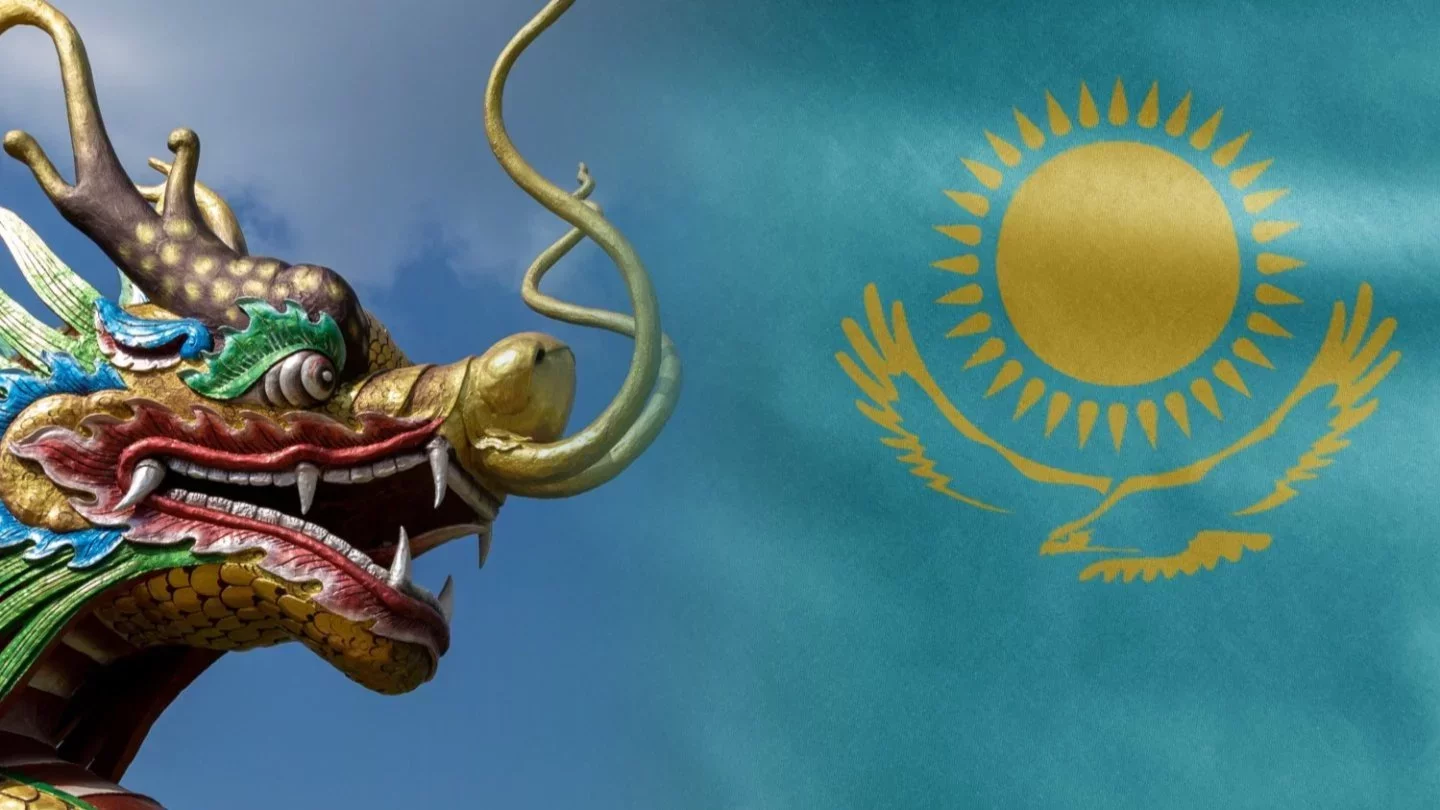Is The Yuan Really Replacing the Dollar in Kazakhstan?
 Photo: Orda.kz collage
Photo: Orda.kz collage
Recent articles in major media claimed that the Chinese yuan is beginning to replace the dollar in Central Asia, citing Kazakhstan’s issuance of yuan-denominated bonds and the launch of a yuan-backed stablecoin.
Orda.kz has looked into the matter.
Why The Yuan Is Gaining Ground
China is Kazakhstan’s largest trading partner, so greater use of the yuan in settlements is expected. Since September 22, yuan-denominated securities have been available on the KASE exchange. Kazakhstan also plans to issue $2 billion in yuan bonds for the first time.
These steps are meant to support growing trade with China and attract investment.
Major Kazakh institutions — including KazMunayGas, the Development Bank of Kazakhstan, and Samruq-Qazyna — are issuing yuan bonds (panda and dim sum bonds). This reflects economic ties rather than a policy of abandoning the dollar.
China is currently implementing 224 projects in Kazakhstan worth $66.4 billion, employing 50,000 people. It ranks among the top five investors in the country.
The issuance of yuan bonds reflects the appeal of low yuan rates and growing trade with China rather than the emergence of a de-dollarization trend... it is premature to talk about the loss of the dollar's hegemony,
said Zhiger Kurmet, chief analyst at Halyk Finance.
Trade Reality
From January to May 2025, trade between China and the five Central Asian states reached $39.9 billion (286.4 billion yuan), up 10.4% year-on-year.
However, Chinese exports to the region are roughly double imports from Central Asia.
In Kazakhstan’s case, over 20% of total trade is with China — but most of that is imports, worth $14.9 billion in the first half of the year. Kazakhstan’s exports to China have dropped due to falling prices and weaker demand for oil and metals.
Meanwhile, China has increased exports of cars, chemicals, and metals to Kazakhstan. In sectors like manufacturing and mining, transactions in yuan have grown — but the change is tied to convenience for Chinese suppliers, not an official shift away from the dollar.
For now, any real “yuanization” is happening in commodity trade rather than finance. The scale remains too small to speak of de-dollarization.
Why Kazakhstan Is Betting on China
Deputy Prime Minister and Economy Minister Serik Zhumangarin told Bloomberg that Kazakhstan is trying to reduce dependence on oil as prices decline and production slows. The government is investing heavily in logistics and infrastructure, aligning with China’s Belt and Road strategy.
President Toqayev recently opened a new rail link to China worth half a trillion tenge, calling logistics a strategic priority. Kazakhstan hopes to establish itself as a transport hub — something that depends heavily on Chinese financing and cooperation.
Conclusion
Kazakhstan’s move toward the yuan is driven by investment needs and trade ties with China, not an ideological push to abandon the dollar. The yuan is gaining visibility in Kazakhstan’s economy, primarily through infrastructure financing and targeted commodity deals.
China may not need Kazakhstan, but Kazakhstan needs China.
The key question is how Astana can leverage these investments without becoming overly dependent on its most powerful neighbor.
Original Author: Nikita Drobny
Latest news
- Kazakhstanis Can Now Enter Armenia With ID Cards, But Registration Is Required
- Inflation Spike Raises Odds of Rate Hike — Experts
- Pavel Durov Announces Launch of AI Lab in Kazakhstan
- Senator Says Yertayev’s Amnesty Was Applied Improperly
- Almaty Power Plant Ranked Among World’s Top PM2.5 Polluters
- Kazakhstan: OPEC Requesting Further Production Cuts
- Prosecutor Seeks Conviction and Fine for Qandyagash Akim Accused of Assault
- Is The Yuan Really Replacing the Dollar in Kazakhstan?
- Court Reverses Amnesty for Jomart Yertayev Convicted in 144 Billion Tenge Theft
- Lawmakers Demand Crackdown on Fraudulent Loans, Blame Bank Employees
- Youth Sex Survey Reveals Early Activity, Limited Access to Care in Kazakhstan
- KazMunayGas Details Fuel Reserves as Atyrau Refinery Begins Maintenance
- Russia Eyes Asian Gasoline Imports amid Refinery Disruptions and Fuel Shortage — Kommersant
- Kazakhstan Adopts New Uranium Strategy to Supply Future Nuclear Plants
- Kazakhstan Plans to Launch AI University
- Qaraganda Police To Be Investigated Following Police Precinct Incident
- Deputy Bapi Demands Fair Investigation Into Nurbol Nazarbayev
- Jezqazgan Residents Speak out over Rising Gas Prices, Akim’s Office Attempts to Explain
- Officials to Conclude Forensic Exams by Late October After Two Student Deaths at Nazarbayev University
- Deputy Demands Investigation Into Mass Ticket Purchases By State Agencies For Kairat vs. Real Madrid Match

